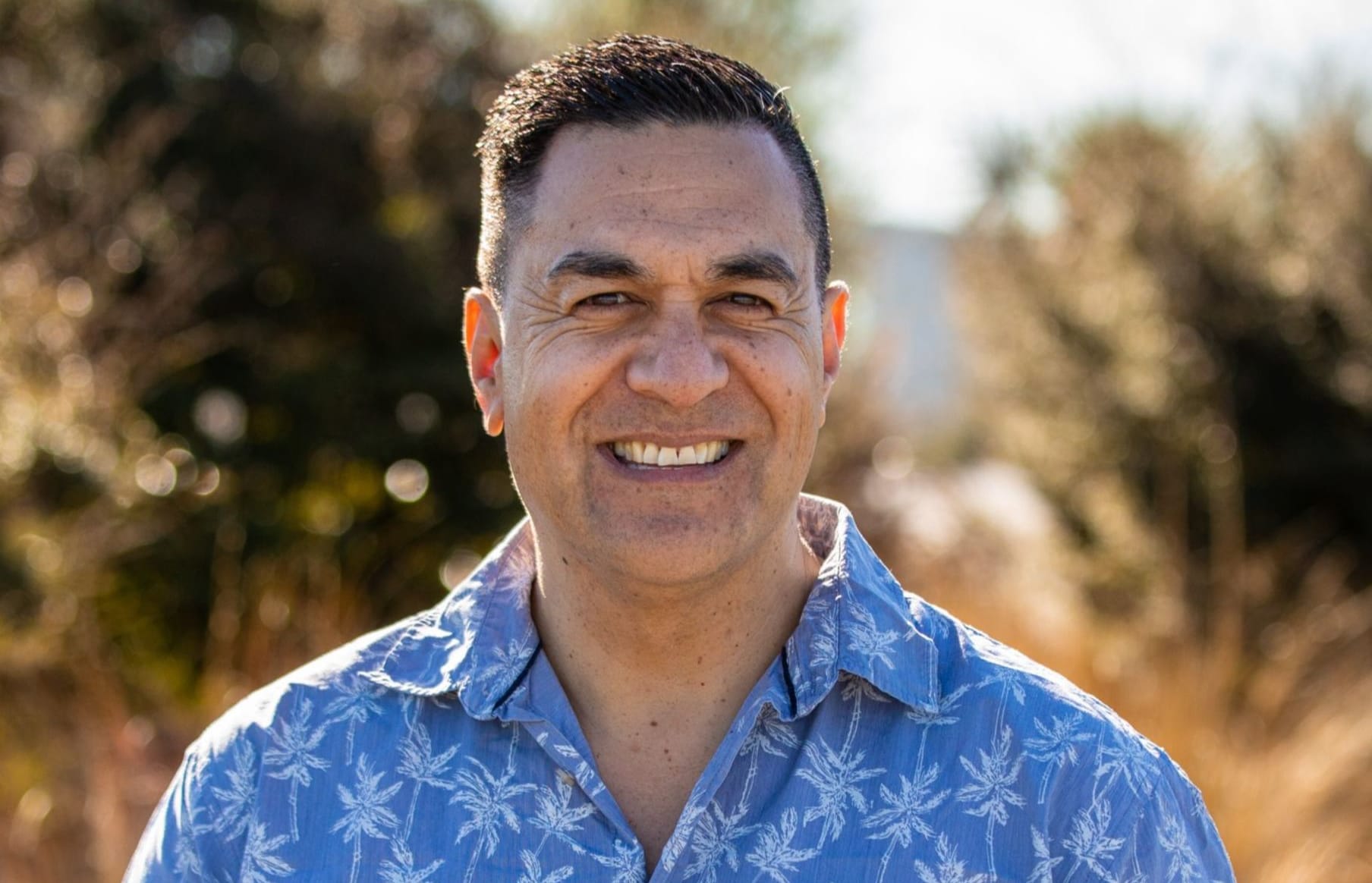Julian Wilcox (Ngāpuhi, Te Arawa) is the host of RNZ's new magazine-style show Māpuna, which launches on 5 February.
The acclaimed broadcaster chats to Yadana Saw about some of the songs that have shaped his life.

Julian Wilcox Photo: RNZ
Julian's parents always listened to RNZ when he was a kid and he's wanted to be part of the national broadcaster's Māori programming for a long time.
In 20 years in Māori broadcasting, he's grabbed opportunities to talk to people who seem to have "the keys to life" about how they've achieved success, and show rangatahi Maori how they might do the same.
People are complex, Julian says: "When we get to the backstory, that's where the juice is… it's the juice that really stands out from peoples stories and that's where they find a lot of kinship and fraternity."
Before taking up his new RNZ job, Julian worked with the Ngāi Tahu iwi in Christchurch for seven years.
"I loved every minute of working for Ngāi Tahu because I learnt a hell of a lot and I got to do things I had no experience in… the iwi looked after me and my whanau and I owe them a lot for doing that for seven or eight years."
To Julian, the 1985 song 'Maranga Ake Ai' by Māori reggae band Aotearoa represents the start of a Māori cultural revival in the 1980s.
"There really was a revitalisation of things Māori when I was a child… and that kind of sparked the fire to go on this journey to learn about my identity and language and culture. That's what I always think about when I hear this song."
When Julian was a kid in Upper Hutt - "the bogan city of Wellington" - he didn't know what being Māori meant.
"I couldn't tell you what my tribes were… my dad spoke Māori, my mum could understand Māori."
"I can remember when people were still taking the mickey out of [the 1984 hit] 'Poi-E', changing the words and being fairly derogatory about it. These were all my classmates, some of whom were Māori."
Julian's older brother - "big strong and quiet, so completely different to me" - got him into Metallica as a young teen.
Their 1991 song 'Enter Sandman' takes him straight back to his brother playing air guitar with his mates in the garage.
While Julian's brother and all of his mates went to Upper Hutt College, he was instead sent to the Māori-focused boarding school Te Aute College in Hawke's Bay - an experience that completely changed his life.
The boys Julian met there - "massive burly dudes who all knew who they were, who were proud to be Māori, who knew their whakapapa back to front, mostly from the East Coast, knew haka, knew waiata, could do their mihi" - are still his best mates now.
"It was then I decided whatever I was going to do would be associated with things Māori."
In the early 90s, Julian's style was influenced by hip-hop culture.
For him, that period is exemplified by the 1992 Wreckx-N-Effect hit 'Rump Shaker'. He once performed a te reo Māori version at karaoke.
"If the music comes on and I'm somewhere, I'll start busting out a Running Man."
A performance by the Māori band Southside of Bombay was Julian's first-ever live show at university.
He was completely blown away by their 1992 song 'All Across the World' that the band began every show with.
Southside of Bombay's music inspired Julian's own Māori language journey.
"I remember feeling really uplifted because I could hear te reo in what was essentially a mainstream song."
When he first heard Brannigan Kaa's 2001 song 'Maumahara Noa Ahau', he knew it would be a smash hit.
"Just about every Māori I know knows the words to the song. That's how popular it became."
These days, Julian also likes a bit of pop thanks to his 10-year-old daughter.
'At My Worst' by Pink Sweat$ (featuring Kehlani) is one his whole family likes singing along with.
"It's just a simple song written really well, produced minimally, which accentuates the lovely voices. And it's a duet and who doesn't love a duet?"

